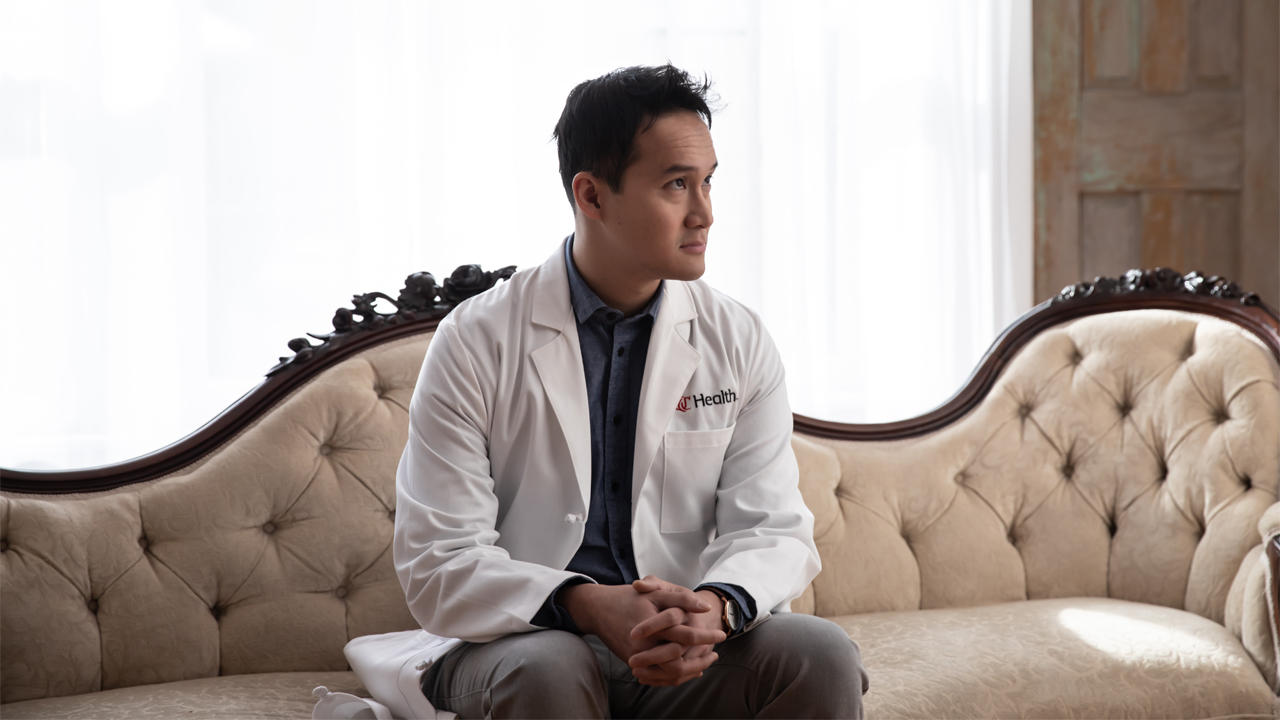“At the time, I thought the worst thing that could’ve happened to me before [the physician] came into the room was he was going to come in and say, “Wow, you really tore your rotator cuff,’” Quinn, a Cincinnati native, said.
But when four other people came back into Quinn’s room, he knew something was wrong.
X-rays showed a much different picture from a torn rotator cuff. Instead, they showed a scapula, or shoulder bone, that appeared to be eaten away and erupting in all directions by disease.
“As I rolled through my own images, I couldn’t tell what was what,” he recalls. “It was like looking at someone else’s MRI.”
Physicians at UC Health and Cincinnati Children’s told Quinn he had Ewing sarcoma—a rare cancer with high mortality rates usually found in children. He was 26 years old, and it appeared that the cancer had already spread.
In a state of shock, Quinn spent the next week breaking the news to his family and friends, preparing them for the months and years to come. He even called his residency program director to tell him he may not be able to finish his training.
“It was just strange, because every time I talked to somebody, it was like I was talking about somebody else,” he said.
Then, after a week went by, Quinn got a call from his physician at Cincinnati Children’s.
“And he says, ‘Call me back right now. It’s not what we thought,’” he said. The final pathology report found that Quinn actually had a type of cancer called diffuse large B-cell lymphoma.
“With any lymphoma, you’re not really talking about five-year mortality rates anymore,” Quinn said. “You’re talking about things like cure rates.”
Quinn knew exactly who he wanted on his care team—the physicians he trusted with his own life were the ones he worked alongside at UC Health. Among them: William Barrett, MD, radiation oncologist and director of the University of Cincinnati Cancer Center, and Tahir Latif, MD, UC Health oncologist.
“I knew they would treat me like a family member, or if this happened to them, what they would do is what they were recommending,” he said.
Quinn’s own experiences have shaped the way he interacts with patients. Now in complete remission and accepted to a fellowship training at New York University, he tries to pass on the hope that his doctors bestowed to him, even when things seemed dark.
“There have been several times when I’ve showed somebody my port, and I think you can sort of see patients’ eyes light up, because they want to know how I got through it,” he said. “Even a glimmer of hope on the worst day of their lives goes a long way.”
